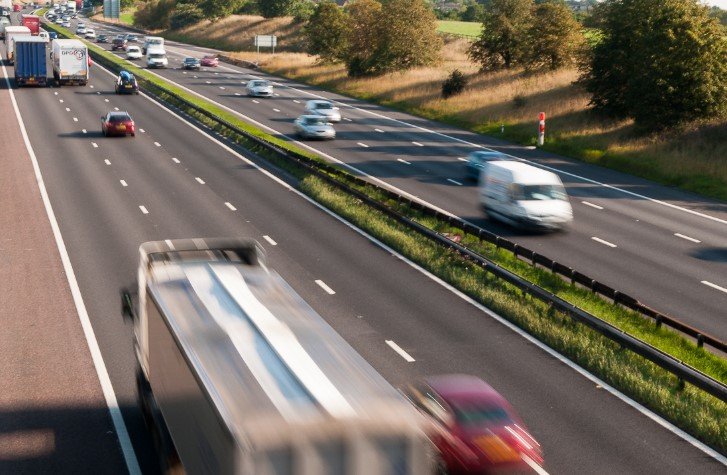Georgia’s Ministry of Infrastructure is struggling with budget shortfalls in 2025, as delays in major projects hinder spending plans. First Deputy Finance Minister Giorgi Kakauridze revealed during a parliamentary hearing that unspent funds total 168 million GEL after nine months, mainly due to slow tender processes for highways and other initiatives.
Budget Shortfall Details Emerge in Hearing
Kakauridze addressed lawmakers at a committee session on the state budget performance. He pointed out the ministry’s annual allocation of 3 billion GEL, with 1.93 billion GEL earmarked for the first three quarters. Actual spending fell short at 1.76 billion GEL, creating a notable gap.
This underutilization stems from challenges in project launches. Officials expected more progress, but administrative hurdles have slowed momentum. Kakauridze noted that the fourth quarter could see a spending boost as tenders wrap up.
The issue highlights broader fiscal pressures in Georgia. Recent economic reports show the country balancing growth with infrastructure needs, amid global supply chain issues and rising costs.

Major Highway Projects Face Setbacks
Two flagship road projects are at the heart of the delays: the Tbilisi to Red Bridge and Tbilisi to Sadakhlo highways. These are backed by a 250 million euro loan from the European Investment Bank. Tenders began last year, with 190 million GEL budgeted for 2025, but only 4 million GEL has been spent so far.
Construction timelines have slipped due to incomplete bidding processes. This affects connectivity in key regions, vital for trade and tourism. Local businesses report frustration over stalled improvements that could ease traffic and boost commerce.
Similar issues plague other nations’ infrastructure efforts. For instance, recent audits in neighboring areas reveal cost overruns from poor planning, echoing Georgia’s challenges.
- Tbilisi-Red Bridge Highway: Aims to upgrade 50 kilometers for better east-west transit.
- Tbilisi-Sadakhlo Highway: Focuses on border links, expected to cut travel times by 20 percent.
Experts suggest these delays could push completion dates into 2026 or beyond, raising concerns about loan repayment and economic ripple effects.
New Programs Add to Utilization Challenges
Beyond roads, the ministry planned fresh initiatives like sports infrastructure upgrades. Some tenders are out, while others remain in preparation. Kakauridze mentioned reallocating funds to active projects to improve absorption rates.
This approach might help meet yearly targets. However, critics argue it masks deeper issues in project management. Georgia’s 2025 fiscal plan, approved earlier this year, emphasized infrastructure as a growth driver, with total spending projected at 32.5 billion GEL across sectors.
Public transport and resort bypasses, such as the Borjomi project, show mixed progress. While passenger traffic at airports hit a record 6.5 million, ground projects lag, affecting overall development.
| Project | Budget Allocation (GEL) | Spent in First Nine Months (GEL) | Expected Completion |
|---|---|---|---|
| Tbilisi-Red Bridge Highway | 95 million | 2 million | 2026 |
| Tbilisi-Sadakhlo Highway | 95 million | 2 million | 2026 |
| Sports Infrastructure Programs | 100 million | 20 million | Ongoing |
| Borjomi Bypass Road | 50 million | 10 million | 2027 |
The table illustrates the spending gaps, underscoring the need for faster execution.
Economic Impacts and Future Outlook
These delays ripple through Georgia’s economy. Infrastructure spending drives jobs and investment, but setbacks could slow GDP growth, forecasted at 5 percent for 2025. Regions like Tbilisi and border areas feel the pinch, with delayed highways hampering trade routes to Europe and Asia.
Kakauridze remains optimistic, predicting stronger fourth-quarter performance. Reallocation strategies might bridge the gap, but long-term fixes like streamlined tenders are essential. Recent successes, such as the Samtredia-Grigoleti bridge reopening in 2026, offer hope.
Analysts link this to global trends, where inflation and material shortages delay projects worldwide. Georgia’s push for transcontinental routes positions it as a key player, but execution is crucial.
Calls for Accountability and Reforms
Opposition voices in parliament demand better oversight. Berekaashvili, who raised the query, stressed the need for transparency in fund use. Public sentiment, seen in social discussions, reflects frustration over slow road builds and budget mismanagement.
Reforms could include digital tender platforms to speed processes. With elections on the horizon, infrastructure performance might sway voter opinions.
As Georgia navigates these hurdles, staying informed helps citizens track progress. Share your thoughts on these delays in the comments below, and pass this article along to spark discussion on improving budget efficiency.
